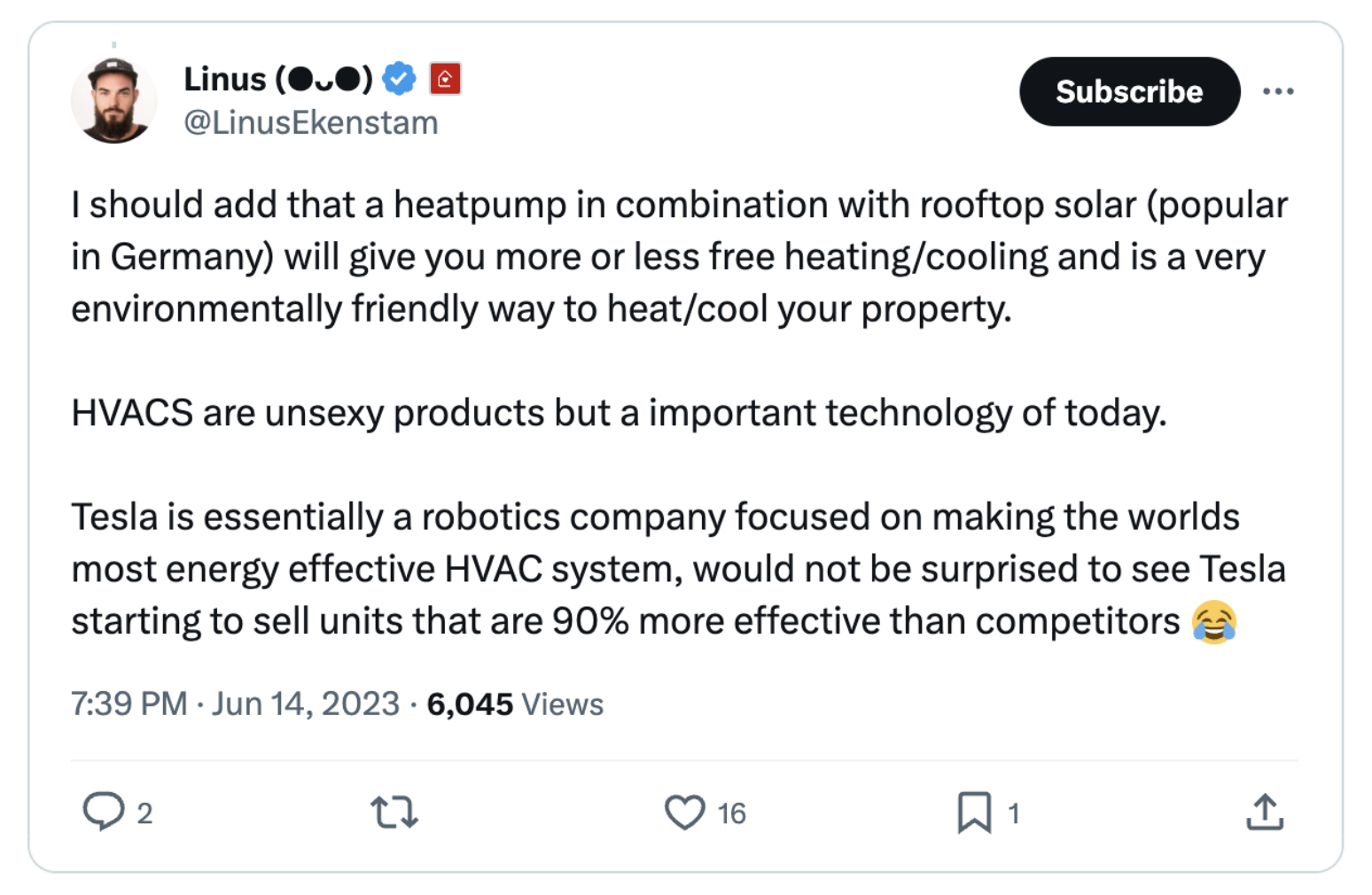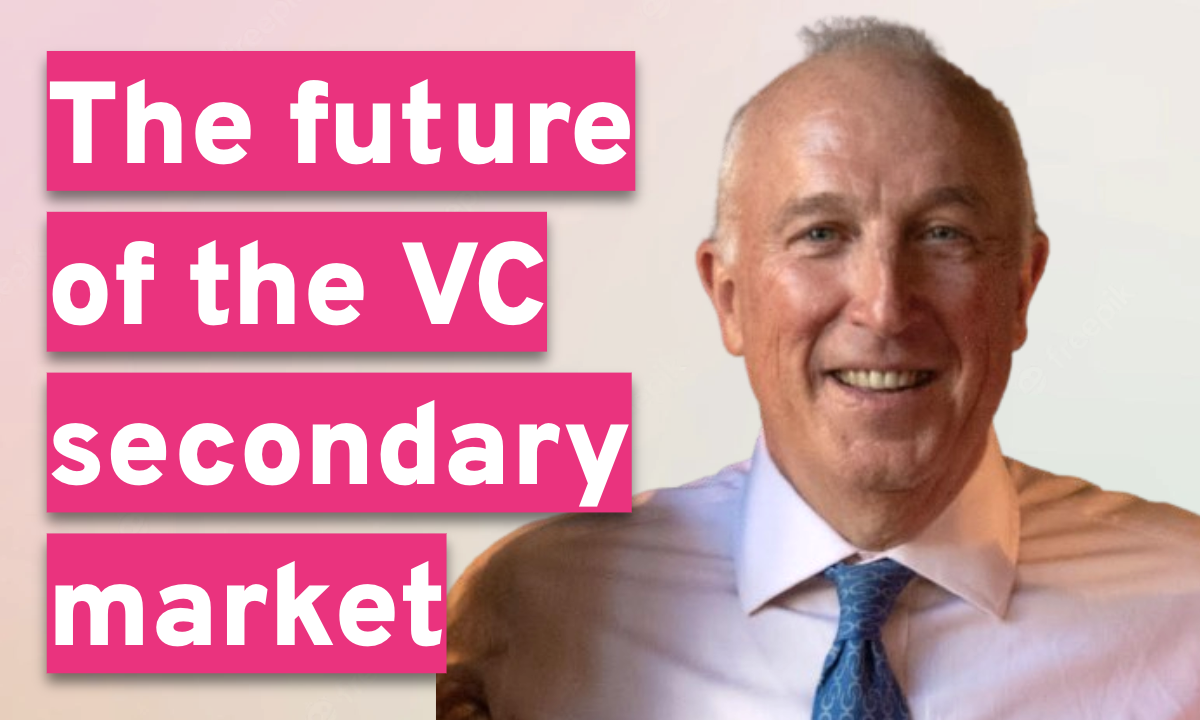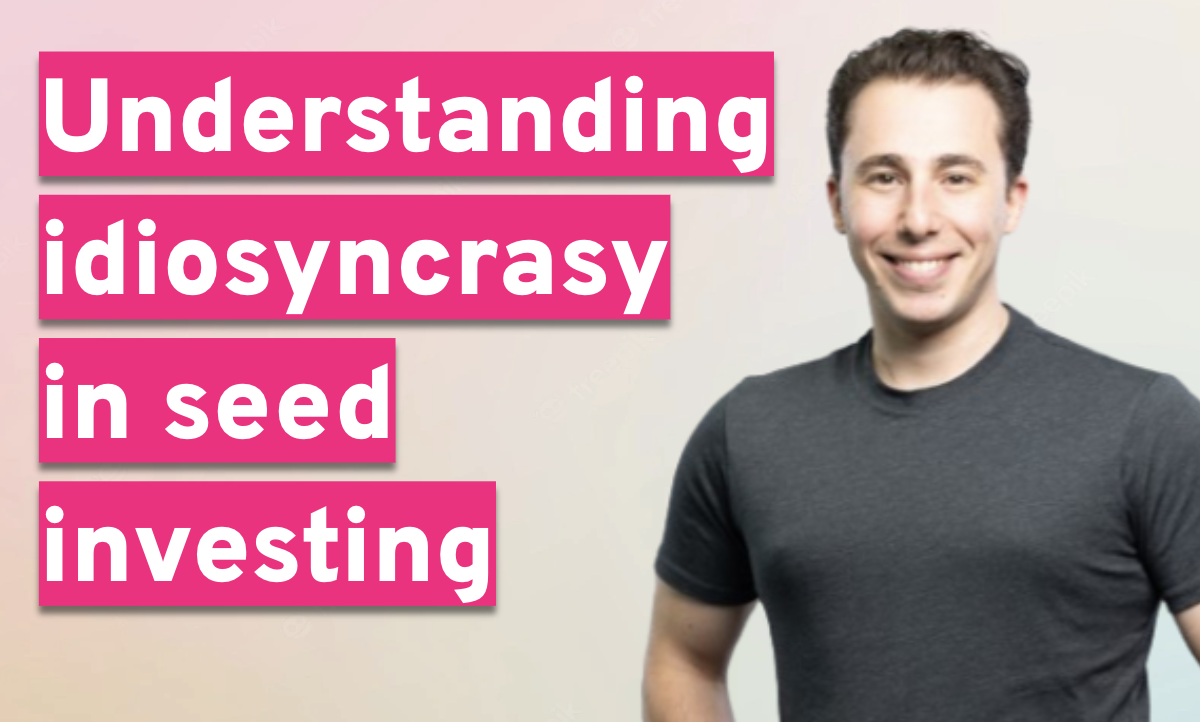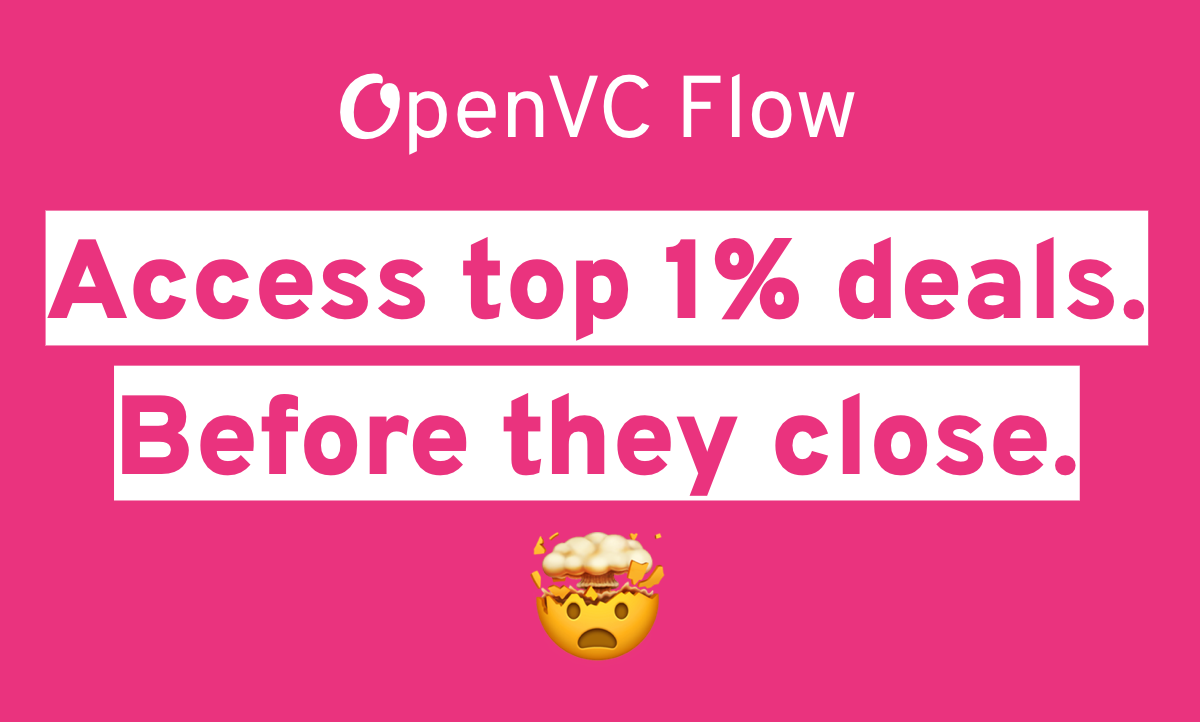We recently had our 2023 annual general meeting (AGM) where we touched on many of the things that are top of mind for 186 Ventures as we enter the third year of investing within our first institutional venture fund.
Our thoughts from our AGM range from firm building all the way to forward-looking trends that we think are important to have an eye on as early stage investors.
Here are some venture capital trends that will impact the industry in 2024 and beyond.
Table of Contents
Trend #1. Capital efficient operating will dominate VC attention
Showing “more with less” will become en vogue in the years to come, especially as it relates to how VCs assess early stage startups that are looking to raise capital. Great companies take several years and oftentimes at least a decade before they are established. Founders who buckle down to deeply understand what makes for a sustainable model— whether it be revenue, product usage, margins, enterprise sales motions, and so on— will be deemed most favorable by downstream investors and customers alike.
Throughout history of tech some of biggest companies in world started off highly capital efficient
— Elad Gil (@eladgil) December 4, 2023
1970s: MSFT bootstrapped until pre-IPO
1980s: Dell bootstrapped until pre-IPO
1990s: eBay and Y! raised minimal $
2010s: Instagram and Whatsapp stayed lean
2020s: Midjourney
We think a lot about not just what a company has achieved in a snapshot sense, but more importantly, what a company has achieved within the context of how much resourcing was required to date toward hitting said achievements. Generally speaking, a company that burned only $1.5m to achieve $1m in ARR looks a lot better than a company that burned $4m to achieve $1.5m in ARR. In the coming months and years, founders will want to constantly check that they’re on the right side of this equation– not for the sake of VCs, but more so for themselves and their employees. We always like to remind founders (at the appropriate times) that every dollar of capital burned is a dollar of capital that founders need to pay back at some point, either to themselves (if they’re bootstrapping) or investors.
Trend #2. Previously deemed unsexy technology will create a massive opportunity
There will be immense, mass market venture opportunities in the technology sector that go beyond simple software/digital subscription innovation, which is most of what we have seen from 1993 to date. As the world’s largest problems, such as preventative based healthcare, take new shape and evolve, the requirements to solve said problems will also take new shape and evolve. As information becomes less asymmetric and the technical threshold needed to build technology lowers, the barrier to entry in tackling industries that are deemed “unsexy”, like mining, defense tech, and biotech, will also lower. Thus, the idea of building economically sustainable models on the back of venture capital will become more viable.

There are two main drivers of this trend in particular: 1) the digital era of text and video-based distributed content has created an even playing field in the technical disciplines never possible before 2010, and 2) AI has become so widely available to most builders over the last several years.
With that said, we think there will be a tremendous opportunity to build key defense, healthcare, and “hard asset” infrastructure that is tech-enabled with the right combination of software and AI.
Trend #3. A new category of business owners will set new standards
The ship has been sailing on the generational shift of baby-boomer owned small businesses to a new category of owners. The jury is still out on how the composition of private equity owned roll ups, independent small “mom and pop” owned, and technology enabled approaches will shake out. It will continue to be abundantly clear that trillions of dollars of small business assets will change ownership hands in the decades to come. This will come with all sorts of interesting consequences, both good and bad, for various industries and society as we know it.
$70 trillion of Baby Boomer wealth will be transferred to Gen X/ Millennials by 2030.
— SMB Attorney (@SMB_Attorney) August 14, 2022
Of that $70 trillion, roughly $10 trillion is comprised of small businesses thad need to be sold.
How are you positioning yourself to capitalize on this once-in-a-generation opportunity?
Keep a close eye on how workflow tendencies across various sectors across small businesses will likely allow for interesting, transformative wedges to be built, especially as a result of the new generation of owners and labor coming in.
Trend #4. Investor-founder alignment will increasingly drive decision making
The idea that founders should partner with investors who they feel are aligned with their mission and stage of company building is nothing new. However, in the years running up to the recent market shift of interest rate hikes and startup multiple compression, many founders have found themselves partnering with the wrong type of investors for the stage of company they are at. More specifically, two main scenarios have left countless startups effectively stranded during “the tough times” we are now in: 1) founders looking for advice from VCs who have never experienced tough times themselves and who are unable to give productive advice on how to navigate the valley of death, and/or 2) founders unable to get the attention of their VC because they no longer believe in the early stage startup they backed, and therefore the startup is finding itself with no viable financing options.
Agree. Most VC's have not built enough companies to have earned the right to advise founders. Making the wrong choice of VC is the founders fault. Just getting a "VC job" doesn't qualify you to advise founders. Whose opinion to trust on what topic is the most important thing… https://t.co/DaXfZFxKMn
— Vinod Khosla (@vkhosla) December 2, 2023
The aforementioned two scenarios are being widely talked about by many founders, and to a lesser extent the VC circles I find myself in and founders are taking notice. As we move into 2024, a premium will be placed on VCs who can deliver on mission critical startup know-how advisory along with a laser focus on the seed stage on behalf of founders, and therefore seed focused VCs with the right operator background may have an advantage in many seed financing discussions relative to their peers.
Trend #5. Lifestyle entrepreneurs and VCs will get flushed out
Technology has inarguably become the preferred product and solution set to the world’s largest problems, both within a commercial and personal context. Thankfully, in light of this realization and private markets evolving, the venture asset class has gained immense popularity in recent years which has led to a proportionate increase in capital allocation at the limited partner (LP) level. We now have more than enough capital available to fund the journeys of entrepreneurs building across all sorts of industries and verticals.
The flipside to this is that in recent years entrepreneurs who previously would most likely not qualify for venture financing have been able to raise a fair amount of capital. Furthermore, VC firms went on a premature hiring spree and found themselves bloated with too many investors, thus in some cases resulting in under qualified investors guiding founders.
There are too many VCs.
— stevie on x (@steviemctweets) October 20, 2023
There are too many founders.
But not for much longer.
As we move into 2024, we are already witnessing a bit of a correction as it relates to companies that are unable to raise capital when they otherwise could in prior years. In the coming years, we will see founders who are not really “all in” on why they are building a business and VCs who are not really equipped to adequately support founders at the early stage get pushed out of the marketplace.
Conclusion
2024 is going to be a fantastic year for the innovation economy and founders alike. There has never been a more incredible time in recent history to build and invest in startups. We are extremely fortunate and privileged to have the opportunity to partner with founders on their journey in the months and years ahead. If you’re building anything interesting, reach out at [email protected].
About the author
Giuseppe Stuto is a co-founder and managing partner at 186 Ventures. Giuseppe is a former founder and operator with both large-scale consumer technology and “deep tech” experience. He likes to work with, and support founders, who are tackling ideas that have the ability to disrupt the way things operate in today’s world. Giuseppe tends to favor working and supporting founding teams that are technical in nature and that have demonstrated an ability to iterate aggressively.
OpenVC is the best way to access deals 🤝
Browse the top 1% of deals and interact directly with founders. Completely free.










